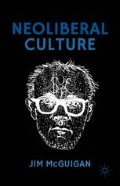Abstract
The American management consultant and author of the widely acclaimed book The Rise of the Creative Class,1 Richard Florida, has advised on public policy in US cities and in several cities around the world. Florida’s ‘creative class’ thesis is particularly relevant to an understanding of how neoliberal ideology is manifested in the politics of culture, as acknowledged in the following quotation from Trine Billie, a Danish cultural-policy researcher: ‘Florida… introduces a new perspective on economic growth that rests upon the presence of creativity.’2 According to Florida, economic growth is generated by ‘creative-class’ activity. So, he advises governments in partnership with business — especially in cities that have seen better days — to develop cultural amenities that attract young creative types. Thus inspired, Billie has surveyed the cultural preferences of the ‘creative class’ in her own country of Denmark.
Access this chapter
Tax calculation will be finalised at checkout
Purchases are for personal use only
Preview
Unable to display preview. Download preview PDF.
Notes
Florida, R., 2003 [2002], The Rise of the Creative Class — And How It’s Transforming Work, Leisure, Community and Everyday Life, Melbourne: Pluto.
Billie, T., 2010, ‘Cool, Funky and Creative? The Creative Class and Preferences of Leisure and Culture’, International Journal of Cultural Policy 16.4, November, pp. 467.
Bell, D., 1976 [1973], The Coming of Post-Industrial Society-A Venture in Social Forecasting, Harmondsworth: Penguin.
Florida, R., 2008, Who’s Your City? How the Creative Economy Is Making Where to Live the Most Important Decision of Your Life, New York: Basic Books.
Creative Class Group, 2008, ‘Clients’ and ‘Workshops & Services’, creative-class.com, downloaded 16 November 2008.
Djilas, M., 1957, The New Class — An Analysis of the Communist System, New York: Harcourt Brace Jancovich.
Bourdieu, P., 1984 [1979], Distinction — A Social Critique of the Judgement of Taste, tr. R. Nice, London: Routledge.
Barbara and John Ehrenreich, 1979, published a classic article, ‘The Professional-Managerial Class’, back in the 1970s in Walker, P., ed., Between Labour and Capital, Boston: South End Press.
Brooks, D., 2000, Bobos in Paradise — The New Upper Class and How They Got There, New York: Simon & Schuster.
Putman, R., 2000, Bowling Alone — The Collapse and Revival of American Community, New York: Simon & Schuster.
Landry, C. & F. Bianchini, 1995, The Creative City, London: Demos.
Florida, R., 2005, Cities and the Creative Class, London: Routledge, p. 6.
Webster, F., 2007, Theories of the Information Society, 3rd edn, London: Routledge.
Boltanski, L. & E. Chiapello, 2006 [1999], The New Spirit of Capitalism, tr. G. Elliott, London: Verso, p. 390.
Rifkin, J., 2000, The Age of Access — How the Shift From Ownership to Access Is Transforming Capitalism, London: Penguin.
Creative Industries Task Force (CITF), 1998, Creative Industries — Mapping Document, London: Department for Culture, Media and Sport (DCMS).
Ministerial Creative Industries Mapping Group (CIMG), 2001, Creative Industries — Mapping Document, London: Department for Culture, Media and Sport (DCMS), p. 00.05.
Work Foundation (WF), 2007, Staying Ahead — The Economic Performance of the UK’s Creative Industries, London: Work Foundation/DCMS, p. 6.
Miller, T. & G. Yudice, 2002, Cultural Policy, London: Sage.
Florida, R., 2012b [2002], The Rise of the Creative Class Revisited, New York: Basic Books.
Copyright information
© 2016 Jim McGuigan
About this chapter
Cite this chapter
McGuigan, J. (2016). Creative Class. In: Neoliberal Culture. Palgrave Macmillan, London. https://doi.org/10.1057/9781137466464_9
Download citation
DOI: https://doi.org/10.1057/9781137466464_9
Publisher Name: Palgrave Macmillan, London
Print ISBN: 978-1-349-56749-2
Online ISBN: 978-1-137-46646-4
eBook Packages: Literature, Cultural and Media StudiesLiterature, Cultural and Media Studies (R0)

